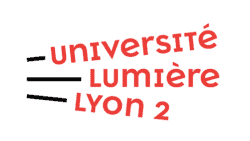
 François Maniez is a corpus linguist at the Université Lumière Lyon 2. He was for years the head of the CRTT (Centre de Recherche en Traduction et Terminologie), which is the research centre for translation in Lyon. What’s more, he is the director of the master’s degree of translation and interpretation at the University of Lyon 2, and he is responsible for the path called Applied linguistics and translation, which is one of the options of that master’s degree.
François Maniez is a corpus linguist at the Université Lumière Lyon 2. He was for years the head of the CRTT (Centre de Recherche en Traduction et Terminologie), which is the research centre for translation in Lyon. What’s more, he is the director of the master’s degree of translation and interpretation at the University of Lyon 2, and he is responsible for the path called Applied linguistics and translation, which is one of the options of that master’s degree.
1) Could you briefly explain what a linguist does? What do you find most fascinating about this field of research?
A linguist studies language, based of course on the research that has come before and on the language that he or she observes in written or oral use – be it current or non-current. What makes this task exciting, even if it does sometimes resemble the myth of Sisyphus, is the fact that language is constantly evolving.
2) What qualities do you think a linguist must possess in order to evolve in today’s technological world?
A linguist must above all be curious, and be both precise and exhaustive in his or her description of language uses. It is particularly important nowadays to master the tools that enable the digital processing of language data. At a minimum, this means knowing how to use terminology databases and concordance tools, but learning how to build a corpus yourself can also be very useful.
3) In your opinion, what is specific about doing linguistics research in France? Do you face particular difficulties or do you benefit from particular advantages? Has anything changed over the years?
Research in linguistics is not fundamentally different from research in other branches of the humanities. Each university’s research units play a role at the local level by, among other things, allowing teacher-researchers to participate in colloquia that encourage the dissemination of theories and practices.
4) Do you think that the Universities teach terminology sufficiently? What advice, if any, can you give to those who wish to study terminology or linguistics?
Terminology is a branch of lexicology, and should therefore be part of every language student’s curriculum. Those who did not have the opportunity to receive instruction in terminology will benefit from reading the works of structural linguists and French and English lexicologists and terminologists.
5) What training is available for students wishing to deepen their knowledge of terminology or linguistics?
There are many, too numerous to mention. The Universities of Paris Diderot and Lumière Lyon 2, among others, incorporate linguistics courses in their Masters’ in Translation.
6) What advice, if any, would you give to new generations of translators or terminologists?
It is important to master the use of digital text corpora, which implies having a basic knowledge of IT management. Recent advances in machine translation also make post-editing training necessary.
7) Are you familiar with IATE and, if so, have you ever used it in the course of your research? If so, have you encountered any difficulties in manipulating this database?
IATE is of course one of the databases we recommend to our students, along with, among others, Termium Plus and the Grand Dictionnaire Terminologique. Its interface is very user-friendly, and it has the merit of integrating a large number of languages that are absent from other resources of this type.
8) Do you have any particular bibliographical recommendations for those interested in the field of linguistics or terminology?
Cf. the answer to question 4.
9) Is there a question not asked here that you would like to answer?
A simple observation comes to mind. Using web search engines for linguistic purposes is becoming more and more frequent. Although these engines can be useful, we must not forget that the results they return about the use of linguistic forms or expressions are only approximations. The web is certainly a gigantic corpus, but its limits are poorly defined, confounding all types of language usage. In the case of English, for example, much of the content posted on the Internet is posted by users who only have a partial command of the language. As a result, the observed uses can evidence certain biases. Using a well-designed corpus is therefore preferable for drawing valid conclusions about usage.
Interviewed by TermCoord trainee.
